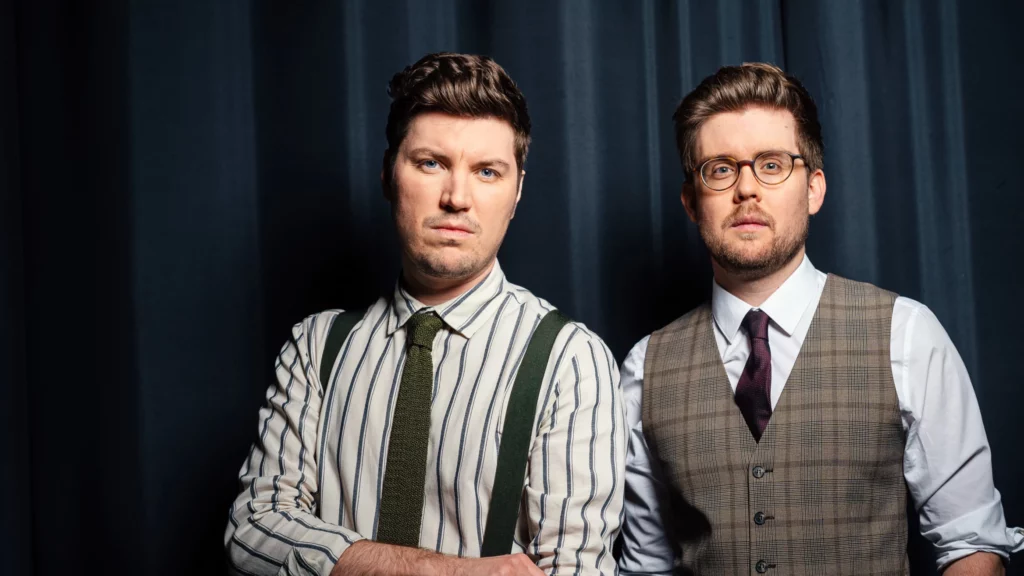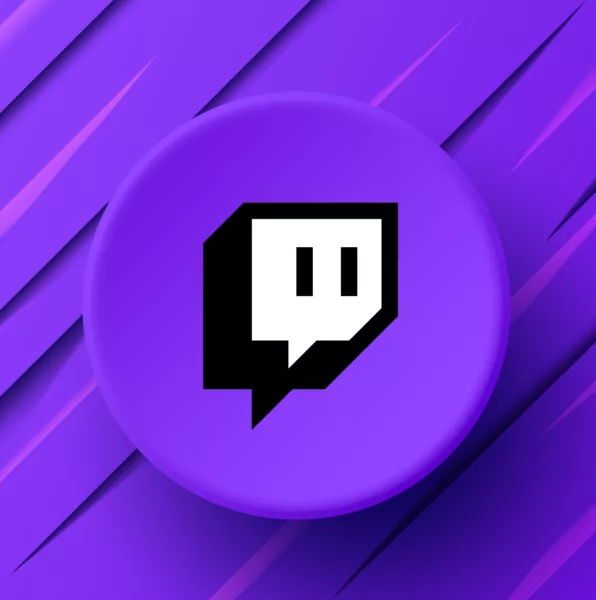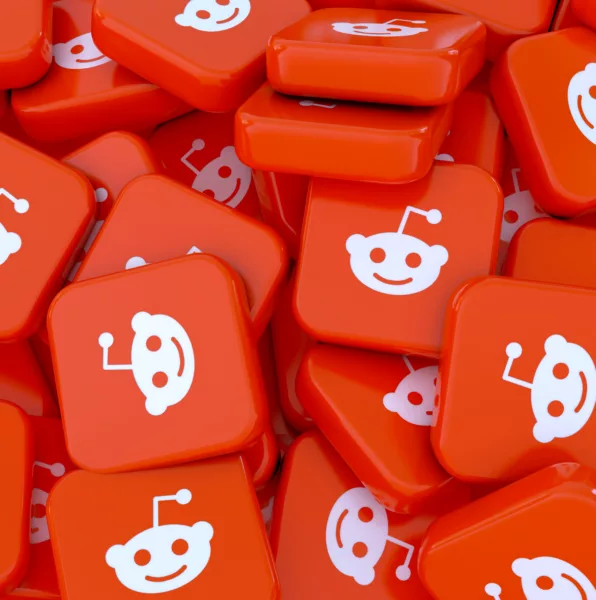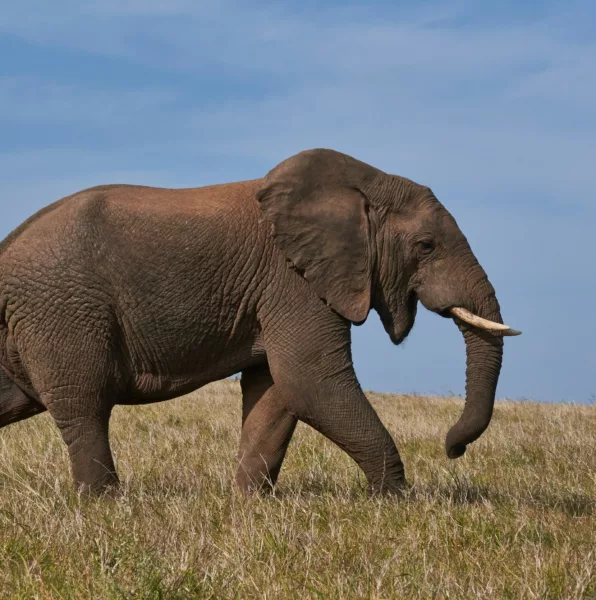Science communication on a gaming platform? On Twitch, Marcus Weinman discusses current biological topics with his followers in live chats. In this interview, the biologist talks about why he values this live interaction and how it also makes him vulnerable.
“I want to be a very present and accessible scientist”
Mr. Weinman, on your Twitch channel Homozygoat you “digest and translate science for everyone else to understand”. You do this via live streams where people are able to ask direct questions, many concerning the Covid-19 pandemic. How did you get the idea?
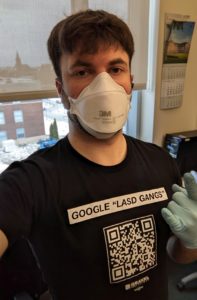
When Covid first hit, at least in the United States, there were orders from the governors to stay at home. For me, it felt paralyzing because I was witnessing the pandemic situation around me and I just felt like I was trapped in a small apartment in the middle of this small city. I felt compelled to do something because I have this ability to process what scientists are figuring out about such a world-changing event as a pandemic.
Why did you choose Twitch for your communication?
I’ve generally been an online person. I have played a lot of video games and kept connections with friends of mine. So, for me, it was a natural transition to take this urge to help other people to understand what is going on in the pandemic to Twitch. I first started streaming towards the beginning of 2021. The highest rates of Covid-19 transmission were in that younger, gaming demographic of 18- to 35-year-old people. So, I thought, Twitch was kind of the perfect platform. The people who can benefit most from staying up to date on the pandemic, knowing what’s going on, and knowing that they might pose a risk to their communities if they are not getting along well with the science, are the exact user base of this platform. Surprisingly it worked out a lot better than I expected.
Example of a stream of the Homozygous channel on Twitch. In this episode Marcus Weinman discusses, among other things about climbing hospitalization rates effected by Covid-19, Monkeypox and Dengue fever in Florida.
What do you think is the big advantage of Twitch for science communication?
The big advantage is the live interaction, for sure. You don’t get that on many social platforms. Twitch provides an opportunity to have dialogues and discussions. You can step out of the proverbial ivory tower of academia on the digital streets of Twitch and talk to people and have a one-on-one.
With that live interaction, you make yourself assailable. How do you deal with people attacking you in the chat verbally?
There have been some targeted attacks based on just the fact that I am in an institution of science. I have been called a shill of the pharmaceutical industry a whole bunch of times. I wish I was because I would get paid a lot more (laughs). I do not instantly want to get rid of those people. I am asking them: That is interesting that you called me a Pfizer employee, which I am clearly not, but why do you think that? I want to pick their brains a little bit to figure out what got them to this point.
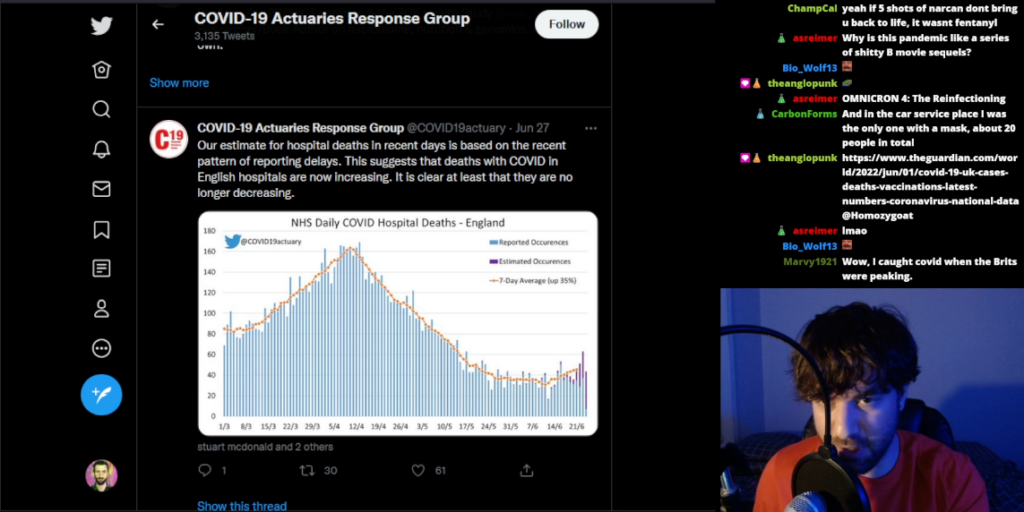
Sometimes you discuss in your stream preprints, sometimes you pick up videos of people who are spreading misinformation. How do you choose your topics?
That is something that happens off stream. I follow other scientists on social media, for instance on Twitter. They do often post opinions or data sets. There is a lot of scientific discourse on Twitter as well as within the comments on preprints and peer-published articles.
How do you “translate” or “digest” this scientific information for your followers?
I am trying to get to the bare bones message. I’m asking myself: What is going on? What need the people to be aware of? What can I tell them? For me it is like an exercise: Extracting the most basic distillation of what that science is trying to say. As a graduate student, digging through literature is a skill I need anyway. So, I am just taking some of my scientific training and applying it to this whole different context of science communication. At the same time, there are a lot of people with questionable opinions varying in popularity. If there are prominent figures, especially when they are academics, I am checking out what they are posting and analyze why it is wrong. Often there are for instance some statistical misinterpretations. I communicate those as well. It is kind of a consideration of what people want to see and what people should hear. And that is a freeing aspect of Twitch streamers: You are very independent. And because of that independence, you can tell your story. And from my perspective, I am used to telling stories with data.
Sometimes you stream together with other scientists calling yourselves jokingly “The Ministry of Science”. In this panel, you discuss for instance political aspects of the pandemic with your followers. Why did you start it?
There are surprisingly a lot of academics on Twitch kind of trying to spread the good word of science. We have connected and started working together to tackle the larger problem of science communication and misinformation online. Especially in terms of the pandemic. We thought: People are having their panels where they are spreading misinformation. Alright, let’s have some academics or scientifically minded folks on our own panel talking about political issues going on in the pandemic. Let’s fight fire with fire here. We take data-driven information and try to make the discussions more informational, and more educational, rather than combative and heated.
Additionally, we want to give other academics the opportunity to talk about their work to help them to develop their communication skills with a lay audience.
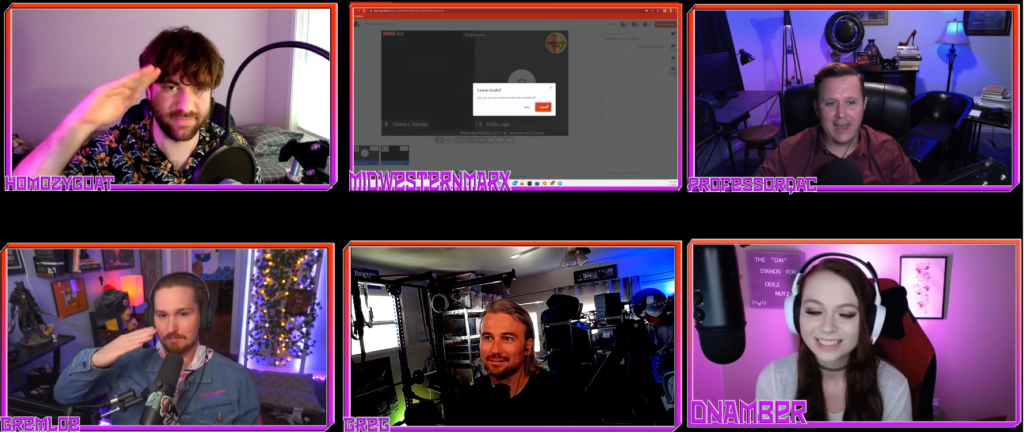
Which advice would you give to a person who would like to start a Twitch channel for science communication?
It really requires thoughts in terms of the content you would want to create. You have to find your own niche. The first thing is to figure out what you really want to talk about and see if anybody else on the platform is doing it. If it is something underrepresented then people will be interested.
Diligence is something that is necessary for success. To make my stream happen I had to do it at least twice a week. I really had to force myself to schedule my research almost around twitch streaming. Now it is for me like second nature. I show up at a certain time. I come home and I think: Oh, I have done all my lab work for today now I can start the computer and do a twitch stream. Habit is such a big driver.
What do you think may help to motivate scientists to do science communication?
Not everybody is cut out to be a science communicator, but the people who are should do it more often. I just stumbled into science communication and figured out that I liked it. If I can make this happen, other people can as well.
Science communication should be better incorporated into formal academic training. And that is actually one of my biggest complaints. We are taught to be good lab rats. We are taught how to produce data that is very valuable for the university. But besides this, there is not much that is going into our training. I want the training that people get in graduate school to be at least more humanistic and focused on talking to people. Scientists should be able to explain how we are doing science, and what we are doing with our data. They should learn how to build empathy, trust and how to communicate without too much jargon. At the same time, we should be making scientists aware that science communication takes many forms. For instance, live-streaming is one of them, and writing a press release might be another.
What plans do you have for your Twitch-channel?
As far as the twitch stream goes, I want to expand my presence. I want to branch beyond that sort of being the biology guy, answering questions for instance about a new biology paper, or maybe CRISPR. These are biological questions people are asking all the time on the platform. For this, I want to be a very present and accessible scientist. Like a one stop shop for people who have questions. A science hub for at least biology, because that is where my expertise is. And of course, if I make more connections with other academics in other fields like chemistry or physics, that would make that network much stronger. I think projects like this would make Twitch as a platform more educational and ultimately more grounded in reality.
